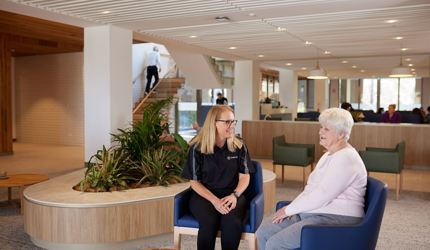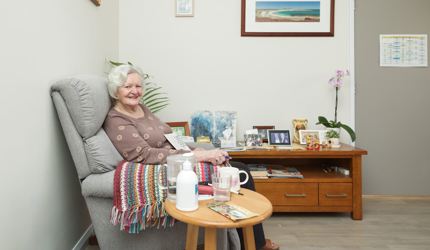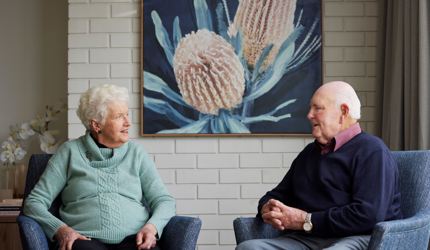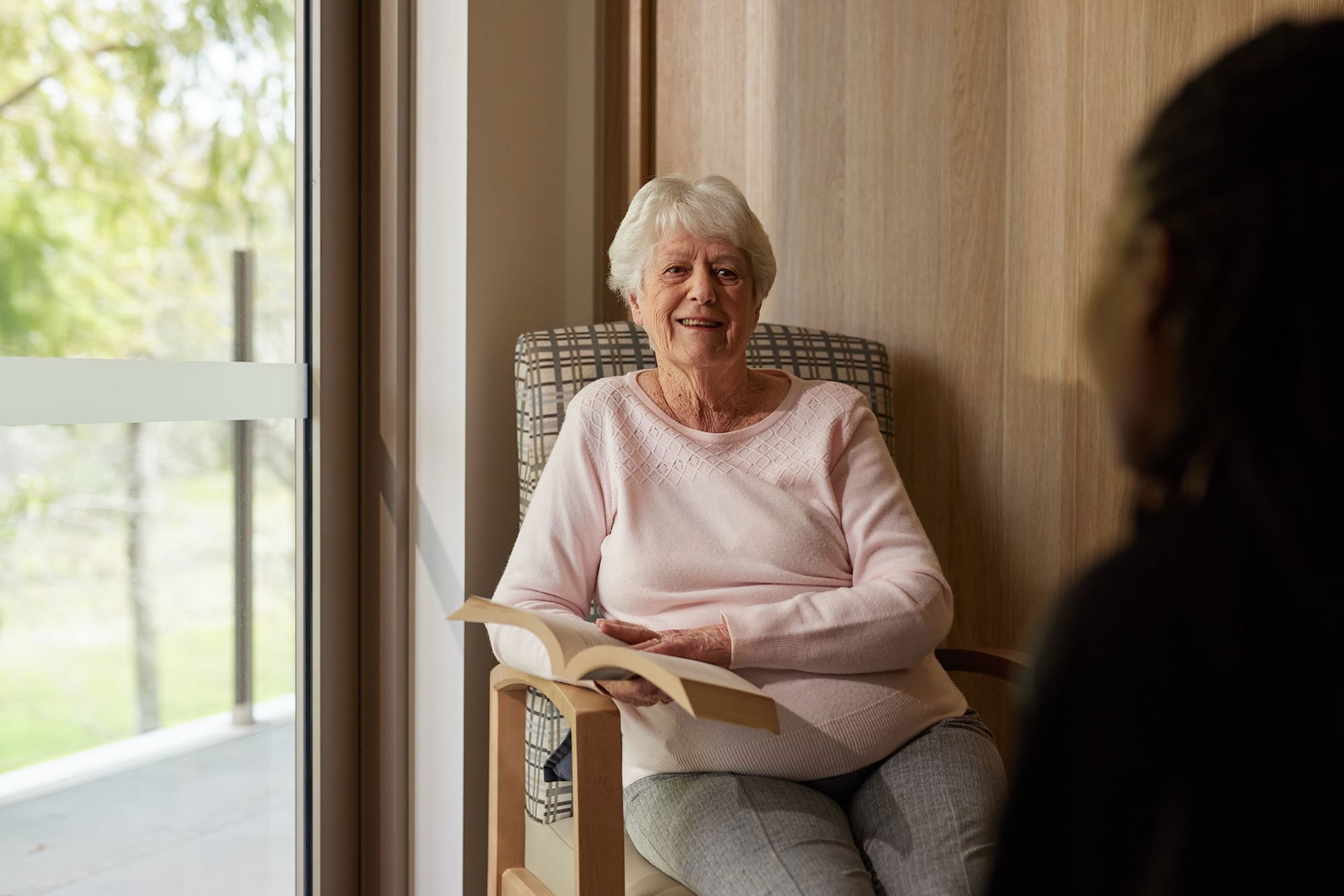
Moving into residential aged care is a massive transition. While preparing for major life milestones like starting school, leaving home, and getting married is common, planning to move to residential aged care is often overlooked and often comes when we least expect it. Whether you or a family member are considering moving into an aged care residence, knowing what to expect can ease anxiety and make the first day smoother. This guide takes you through what a first day in residential aged care is like at Brightwater.
How the day unfolds
It’s not uncommon for an illness or an event like a fall to trigger a move into residential aged care. Many people come straight from the hospital or from transitional care and may have only seen photos of their new home. It can feel disorienting, especially if you arrive in hospital transport.
Regardless of why the decision for residential aged care was made, most new residents will experience conflicting feelings including grief, sadness, trepidation, relief, and resignation. Brightwater The Oaks Service Manager, Anne-Therese Pratt says all these emotions are normal and they often extend to family members.
“The first day can be overwhelming because people are dealing with so much,” Anne-Therese said.
“You go from living in your own world to living with a group of strangers. It’s like going to boarding school, it’s the only comparison I have. When I went to boarding school, my parents were told it would take me 8-12 weeks to settle and not to take anything I said too seriously until after first term!
“People leave their home for one little room. They have to adopt a new routine, they have less control of when they have meals and what they eat, and they’re in a strange environment where they don’t know anyone.”
Preparing for the move
Despite this, Anne-Therese says new residents settle in much easier if they’ve had some say in where they’re moving. Advance preparation before move-in day can also help with the adjustment. She says it’s important to personalise the new living space before the move if possible.
“We recommend, here at Brightwater, that families come in and set up the room the day before the move,” Anne-Therese said.
“Bring a favourite chair and their favourite doona cover. Bring in favourite photos, paintings, and knick-knacks that will make their new room feel like a familiar environment.”
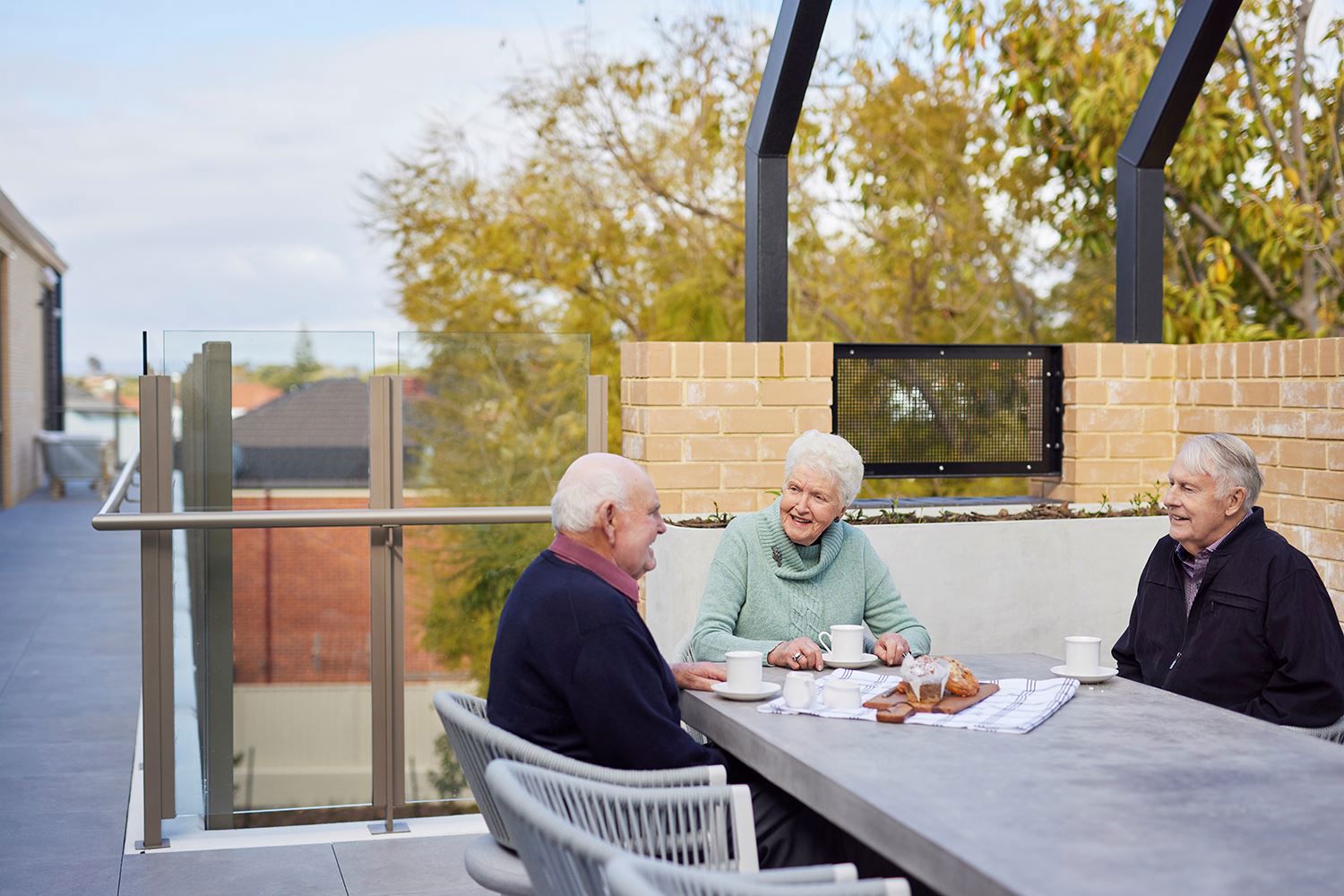
What’s provided for you
Much of what you need is provided by the home, including:
- An electric, height-adjustable bed
- Bedside table/locker
- Over-the-bed table
- Armchair
- Wardrobe
- ‘Flat’ linen – bedding and towels.
What you should bring when moving into residential aged care
Residents are often surprised at how little they need to bring with them.
- 7-10 days of clean clothing, all labelled with your name
- Comfortable shoes and slippers
- Warm cardigans and jumpers
- Personal care items, such as hairbrush, comb, hair clips and/or headband
- A medication list as part of your health summary
- Favourite bedding, including pillows and a doona cover
- Meaningful decorations such as photos and artwork
- A favourite chair
- Television, but check to make sure it meets the required standards for the facility
- Mobile phone
- Sturdy shopping bag or small satchel
- Mobility aids such as a walker.
Residents are welcome to bring small furniture items but keep in mind that space is restricted. If you have a recliner, it must have electric controls. Recliners with a manual lever on the side are not permitted.
Items that need approval
Every home has different requirements and rules around what you can bring. It’s best to check with the service manager about:
- Electrical appliances, such as electric razors
- Manual and electric wheelchairs
What NOT to bring with you
- Large sums of money
- Valuable items such as expensive jewellery, watches, coin collections, etc.
- Heaters
- Air-conditioning units
- Fans
- Mini fridges
- Extension cords
- Double adaptors
- Outlet boards.
Most paperwork is typically handled before move-in day, but it’s worth knowing what will be needed.
- Medicare card
- Pension card
- Health insurance details
- Contents insurance cover (recommended)
- Advance care directive (if applicable)
- Legal documents (e.g., power of attorney).
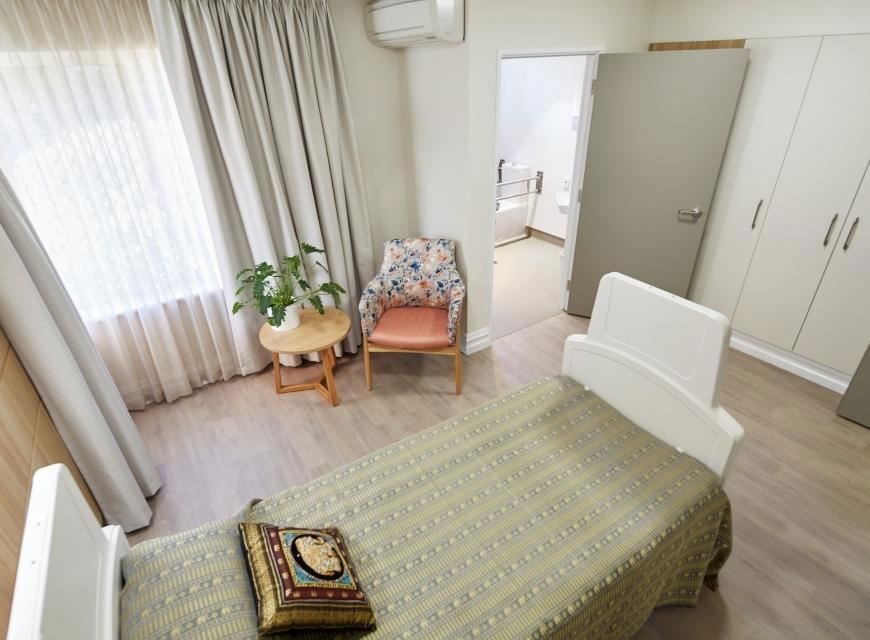
Arriving at your new home
The first day is focused on settling in and becoming familiar with your new surroundings. Ideally, new residents arrive in the morning, with admissions starting at 10am. Anne-Therese says everyone at The Oaks is met at the front door and welcomed into their new home.
“We greet you and then take you to your room. You will be shown the room and then we give new residents about half an hour on their own to catch their breath,” Anne-Therese said.
Once you’ve had a chance to collect your thoughts and relax a bit, the nurse on duty will meet you to do vital health assessments on things like weight, blood pressure and temperature. You’ll also be asked about your personal preferences.
“We’ll ask questions about how you like your tea and your coffee, what time you want to get out of bed and what time you like to go to bed,” Anne-Therese said.
“We review mealtimes, when you’d like to eat, and what time you like best for your shower.”
“We go over all those really important questions to allow people to have control over what’s going on in their lives.”
Once this part is complete, it’s usually time for lunch.
“Our staff will take you to the dining room and introduce you to a couple of friendly residents that you can sit with,” Anne-Therese said.
“If you want to stay in your room with family, or if you’re feeling overwhelmed and would rather be on your own, that’s okay.”
After lunch, you’ll be shown around the home, and you’ll learn more about activities available. Further assessments will be spaced out over a week so you can focus on getting settled in on your first day.
At Brightwater, staff are on hand to answer questions and ensure you’re comfortable in your new surroundings. Someone is always available to ensure you get your medication on schedule, are attending the activities you want, and are getting all your meals on time.
Getting accustomed to living in residential aged care
There’s no denying that shifting into an aged care home is a big step for anyone. Anne-Therese said that, like boarding school, it usually takes about eight to 12 weeks before people have fully transitioned into their new life and their new routines and are forming new relationships.
Families are welcome to visit anytime. There are no visiting hours or restrictions on when residents can have guests.
Outings and family gatherings are encouraged
One thing Anne-Therese wished more people understood is that moving into residential aged care doesn’t mean you can never leave. It’s a new home but residents are encouraged to continue their social outings.
“I strongly recommend to families that if you had a routine with mum or dad, like going out for lunch or shopping, there’s no reason why you can’t come and take them out as you always have,” Anne-Therese said. “If there’s a family get-together, take them home with you. Take them out as often as you want.
“Residents can even have social leave where they stay out for a couple of nights with family. That means they can still go on family holidays, have overnight visits, and attend any special family occasion or function.
“Include them as much as possible, as much as they were involved prior to moving to residential aged care. Allow them to still have that connection.”
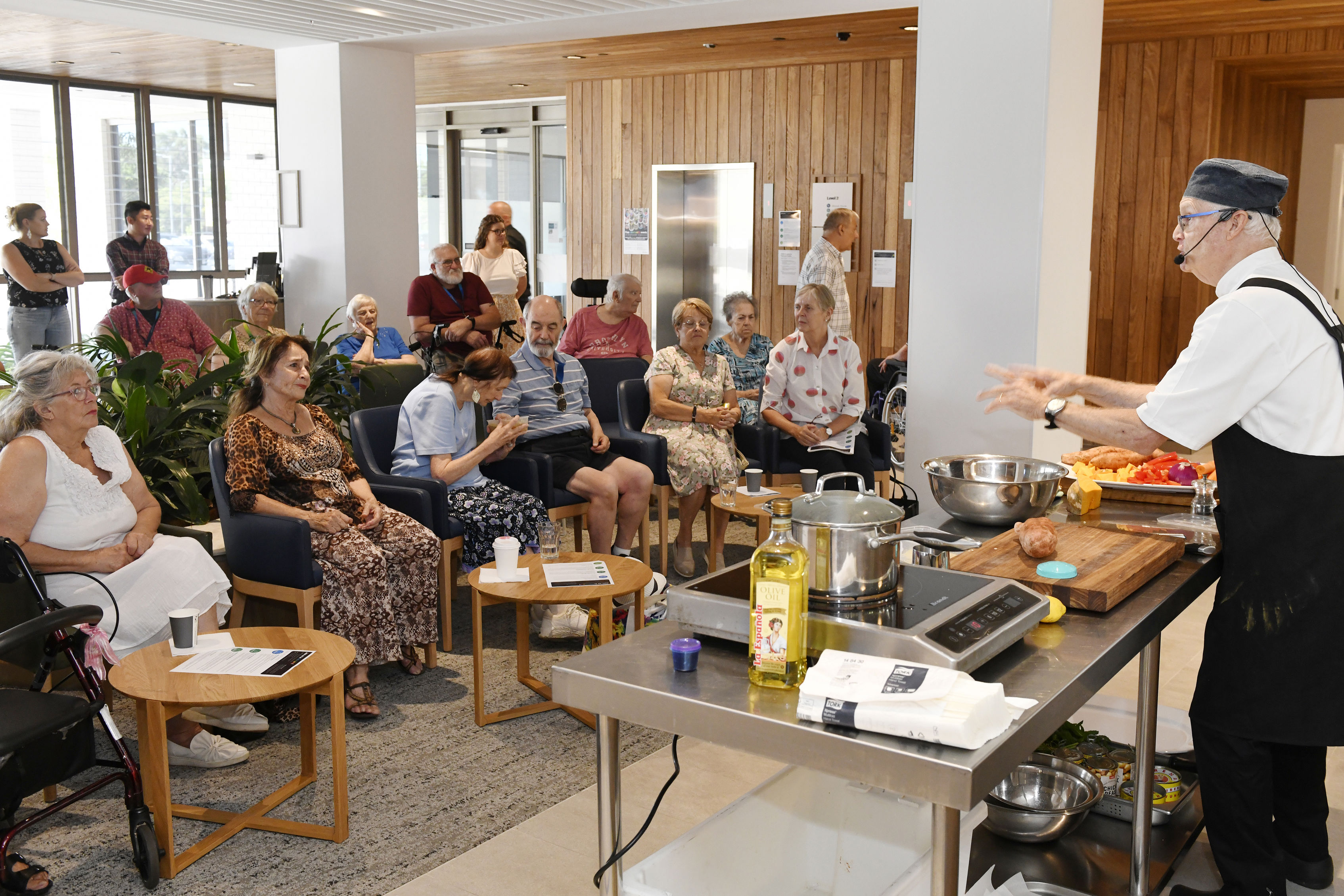
Brightwater provides all the support you need
Aged care facilities offer various forms of support to help new residents adjust, including:
- Around-the-clock care staff
- Nursing services
- Lifestyle coordinators for activities and social engagement
- Pharmacy
- Access to health professionals (e.g. doctors, podiatrist, physiotherapists)
- Meal services – At Brightwater The Oaks, menus operate on a three-week rotational plan and change every six months, at Spring and Autumn. You and your family can provide input into meal planning. Your menu selection can be updated at any time.
“Brightwater staff are very conscious they become part of a resident’s life. They try to meet them where they’re at and provide them the emotional support as well as the physical support that they need.”
Tips for families
Supporting a family member or loved one through the transition to residential aged care is crucial. While you may be relieved and delighted knowing your loved one is now under constant care, they probably aren’t feeling the same way. Anne-Therese offers several suggestions to support a person who has entered full-time care.
- Maintain regular visits.
- Continue family traditions.
- Be patient, it can be a long process to settle in. It will take more than the first 24 hours.
- Frame it positively: an aged care residence is your home, and the staff work in your home for you.
- Remember it’s normal for both residents and families to experience a range of emotions during this transition.
Moving into residential aged care is a big change, but with the right preparation and support, it can also be the beginning of a new, positive chapter. As Anne-Therese puts it, “We’re trying to make residential aged care a much more appetising adventure than it’s ever been before.”
For more information about residential aged care
If you are thinking about residential aged care for yourself or a loved one, give us a call on 1300 223 968 or email us.
Email our Welcome Team
